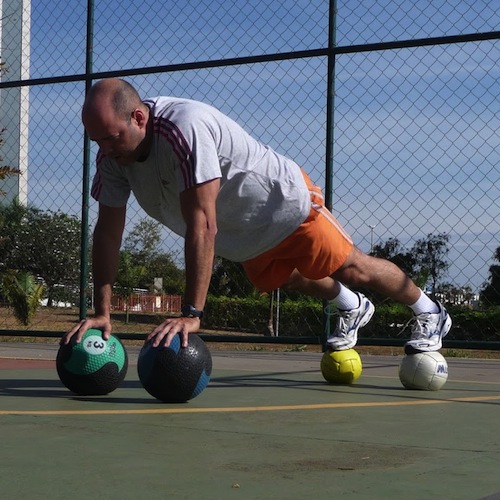Your Body: It’s Not about Being Thin, It’s about Being Fit

We hear all the time in the media about how to be “fit,” and society leads us to believe that people, especially women, are more attractive if they are thin. For lots of people, the motivation to become or remain thin is to be attractive, but thin and fit are not the same thing. That’s why a weight-loss program that’s geared toward shedding pounds and not increasing exercise or eating healthy food might help you lose weight, but it may not improve your overall health.
U.S. and European researchers found in a recent study that overweight or obese people who are “metabolically fit” are not at higher risk of developing heart disease or cancer. On the other hand, people who are lean might have “visceral fat,” which means that they have fat stores in their bodies that are not visible under the skin. Much of this is genetic, but that doesn’t mean there’s nothing you can do to take control of your health. People who are lean or at an ideal weight might assume that they are healthy because they feel fine and they fit into a “healthy weight” and body mass index (BMI) range.
The lesson is that even if you’re at an ideal weight, or even lean, you still need to schedule regular checkups with your primary care provider, along with blood tests for cholesterol and glucose levels. If you are overweight or obese, though, the key to good health could be staying fit, and your focus should be on doing what you can to keep your metabolic chemistry in the normal range, even if you have a hard time shedding actual pounds.
Dr. Timothy Church, co-author of an Aerobics Center longitudinal study and director of the Laboratory of Preventive Medicine at Pennington Biomedical Research Center in Baton Rouge, said, “When you have weight plus insulin resistance, weight plus hypertension, weight plus abnormal cholesterol — then you have an issue. Obviously the more overweight and the more obese you are, the more likely you are to have a metabolic abnormality.”
This also supports the findings of a National Health and Nutrition Examination Survey that was conducted by the Centers for Disease Control and Prevention. This study indicated that overall obesity is less of a gauge for health risk than where on your body the fat is distributed. You could be obese overall but still carry a lower risk than someone who is at an ideal weight but carries excess belly fat (or “visceral fat,” which promotes insulin resistance and inflammation and is considered metabolically dangerous).
So, what does this actually mean for you? Although these scientists have said that one factor that strongly affects the presence of visceral fat and obesity is genetics, it doesn’t mean there aren’t things you can do to reduce your heart disease or diabetes risk. What it means is that if you do carry excess weight, becoming fit can lessen its negative effects.
The Journal of the American Medical Association published one of the best-known clinical trials on weight and fitness that found that although weight and fitness are important, individuals who are at an ideal weight are still at a lower health risk than individuals who are fit but overweight. Those who were at the lowest risk for health problems were individuals who are fit and maintain a healthy weight.
What can I do to increase my fitness?
The essence to being fit is to lead an active lifestyle, complete with regular exercise. Whether you’re just beginning or you’re ramping up a routine you’ve already established, check with your physician to be sure that the exercises and level of exertion that you’re planning are right for you.
Your exercise plan should have the following elements: frequency, duration, and type. Differing opinions about how much exercise you need (how many times per week and for how long) to maximize your fitness exist. However, the key is to determine what is manageable for your lifestyle so that you can stick with it. If you start by overexerting yourself or setting your fitness goals too high, you’re more likely to quit. If you can find a comfortable way to incorporate exercise into your daily activities, it will be more beneficial in the long run.
References: European Heart Journal, Weight Watchers research department
 The Daily Dose
The Daily Dose
gfdg gwerfwfw
I constantly spent my ɦalf an hour to read this website’s articles daily along with a mug of coffee.